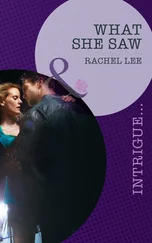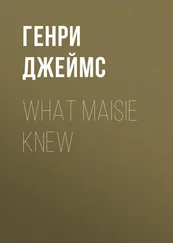‘And anyway, it’s only ever a minority of people who overreact to these things. As soon as they find Ben, everybody will forget. Don’t dwell on it. Keep faith, Rachel. Your friends will still be there for you.’
We were kneeling around the dog basket, petting Skittle. The dog’s hind leg was in a pristine cast, which dragged behind him when he tried to walk. Now he was lying down, his tail managing a drowsy thump or two, but no more. He was wondering where Ben was. I was wondering what he’d seen.
‘The police spoke to the vet,’ Peter said. ‘They asked if Skittle’s injury could tell them anything about how he got hurt.’
‘And?’ said Nicky.
I could tell she liked Peter. He was the opposite of her husband in looks. Simon Forbes was twice the size of Peter. He had the unruly dark hair that their girls had inherited, albeit a tad salt-and-peppery around the edges by now, and dressed in corduroys, well-worn brogues and pressed shirts in country checks under old-fashioned blazers. However, aside from this difference, the two men did share a gentle, sensible quality that appealed to my sister.
‘The vet said that the leg looked as if it was broken with one clean blow, but that could have happened in different ways. It could have been a fall, or it could have been somebody striking him. No way to tell which.’
For a second or two there was silence in the room, an emptiness, which nobody wanted to fill with words, because we were all thinking about what that might mean for Ben, and how bad that could be.
‘How’s Finn?’ I asked Peter.
‘Finn’s upset. He can’t wait to have his buddy back.’ He struggled to keep himself composed. ‘But he’s OK. He’s OK I think.’ He didn’t look sure. ‘School are working hard to handle things.’
I hadn’t thought of that yet, of how Ben’s disappearance would affect the other children.
‘What are they doing?’ Nicky put some tea down in front of Peter.
‘Thank you,’ he said. ‘Well, they’re not ignoring it, the Head has spoken to the children about it, I know that much.’
‘What’s he like?’ Nicky wanted to know.
‘He’s new.’
‘People say he’s a drip,’ I said. I hadn’t met him myself, but that was the consensus in the playground, swiftly delivered by parental posses, after the man had been in the job for less than two months.
‘Well, I wouldn’t go quite that far,’ said Peter.
Peter was a smoother-over of problems, an appeaser. ‘I think to be fair he’s been lying low, getting to know the role, and the staff.’
This was a polite way of saying that nobody had seen him since he started because he hid in his office most of the time, and that he hadn’t yet begun to tackle any of the school’s most obvious and urgent issues.
‘He’s very experienced, so we’re hoping he’ll be good for the school in the long run.’ Peter was also an optimist.
‘Miss May?’ I asked. She was Ben’s teacher, Finn’s too.
‘I think she’s been good.’ Peter sounded surprised. He wasn’t a fan of Miss May. I thought it was because she intimidated him, and maybe because he fancied her just a bit. He’d never admit to it, but I’d seen Peter blush when they talked in the playground. She was young and pretty and had a high attendance amongst fathers at parents’ evening.
I liked her on the whole, which was good, because this was the second year in a row that she’d been teaching Ben. There were certainly worse teachers Ben could have got: dishevelled and angry Mr Talbot, for example, who never marked any work and shouted. Or sociopathic Mrs Astor, who hated children pretending to be animals and was frequently off sick with stress.
Ben had been shy of Miss May at first, but she’d swiftly won him and the other pupils over by demonstrating that she could do a backflip in front of the class, and then cemented their relationship by helping him after John and I separated.
Ben had melted down after John moved out. He’d become tearful and emotional and sometimes angry. It was so out of character, that, very reluctantly, and against all my instincts to be private, I’d had to go into school and tell Miss May what had happened, and ask her to help us pick up the pieces. She’d done that in spades, offering Ben copious amounts of support, and I had to credit her for helping us rebuild our lives since Christmas.
‘From what I can gather from Finn, she’s been talking to the children about it, but not letting them dwell on it,’ Peter said. ‘She seems to be keeping them busy. She was in the playground yesterday after school, talking to parents, as was the Head, which people were pleased about. Most of the staff were actually. It’s beyond the call of duty I’d say.’
Peter was prone to using military metaphors in his speech. It was one of the things that had put me off accepting his offer of a date when he’d tentatively asked me out after my split from John became public knowledge. It was at odds with his creative-type persona, as if he’d somehow manufactured that personality type for himself, and not arrived there naturally.
‘I’m not sure about that,’ said Nicky. ‘I’d say it’s exactly what they should be doing.’
‘What are they telling the children?’ I asked. ‘About Ben?’
‘They’re telling them that he went missing in the woods, that’s the phrase they’re using, “went missing”, and that everybody is looking for him.’ Peter took a noisy sip of tea. ‘Finn’s been having nightmares since Sunday, because of being there in the woods with us I think.’
The thought of Finn’s concern and the memory of his anxious face in the car park made me feel Ben’s absence more vividly than ever. I thought of Baggy Bear upstairs, on Ben’s bed, and his nunny. I thought of Ben without either of his favourite objects, without me, without comfort, somewhere out there, going through something that none of us could imagine.
I crumpled.
‘Oh I’m sorry,’ said Peter. ‘I’m so sorry. I’ve put my foot in it. That’s the last thing I meant to do.’ He looked at his watch. ‘I should go.’
Nicky showed him out, said all the things that I couldn’t, like ‘thank you’ and ‘we’ll let you know if we hear anything’, and ‘thank you again’.
I found Laura in the front room. She was on the sofa, hunched over her tablet.
‘I think this has the potential to go wrong for you,’ she said.
‘What do you mean?’
‘It’s all over the net. Facebook, Twitter, comments on news websites, everywhere.’
‘What is?’
‘I was right. They’re saying you’ve done something to Ben.’
Ben Finch’s primary school reminded me of my own: small neighbourhood school, hotchpotch of portable classrooms clustered around a Victorian building on a cramped site.
Fraser told me to take DC Woodley to the school with me, which was annoying in one way because he had a tendency to behave as though he had L-plates stuck on his back, even though he’d been in CID for over a year. On the other hand, if anyone was going to witness my humiliation at being demoted, however temporarily, to the role of school liaison officer, I suppose he was a good choice because he was too weedy to gloat. ‘No gumption’ my dad would have said about him, and probably worse.
The school secretary fussed around us, boiling the kettle, and looking disappointed when we didn’t want tea or coffee. She wanted to talk. It’s not uncommon. When something traumatic has happened, everyone connected to it has his or her own version of the story to tell. It’s why the press find it so damn easy to fill columns; almost everybody wants to get their few minutes of fame.
The secretary told us she’d known something was wrong when Rachel Jenner hadn’t returned her calls on Monday morning, because it was so unlike her. They automatically called parents, she said, when a child didn’t turn up and there’d been no word from them. She clutched a mug that read, ‘Don’t talk to me until this is empty!’ Fixed to the side of her computer monitor there was a photograph of Ayers Rock under a pink and orange sunset, and a Bible quote, which claimed that faith moved mountains. Both of them irritated me.
Читать дальше












